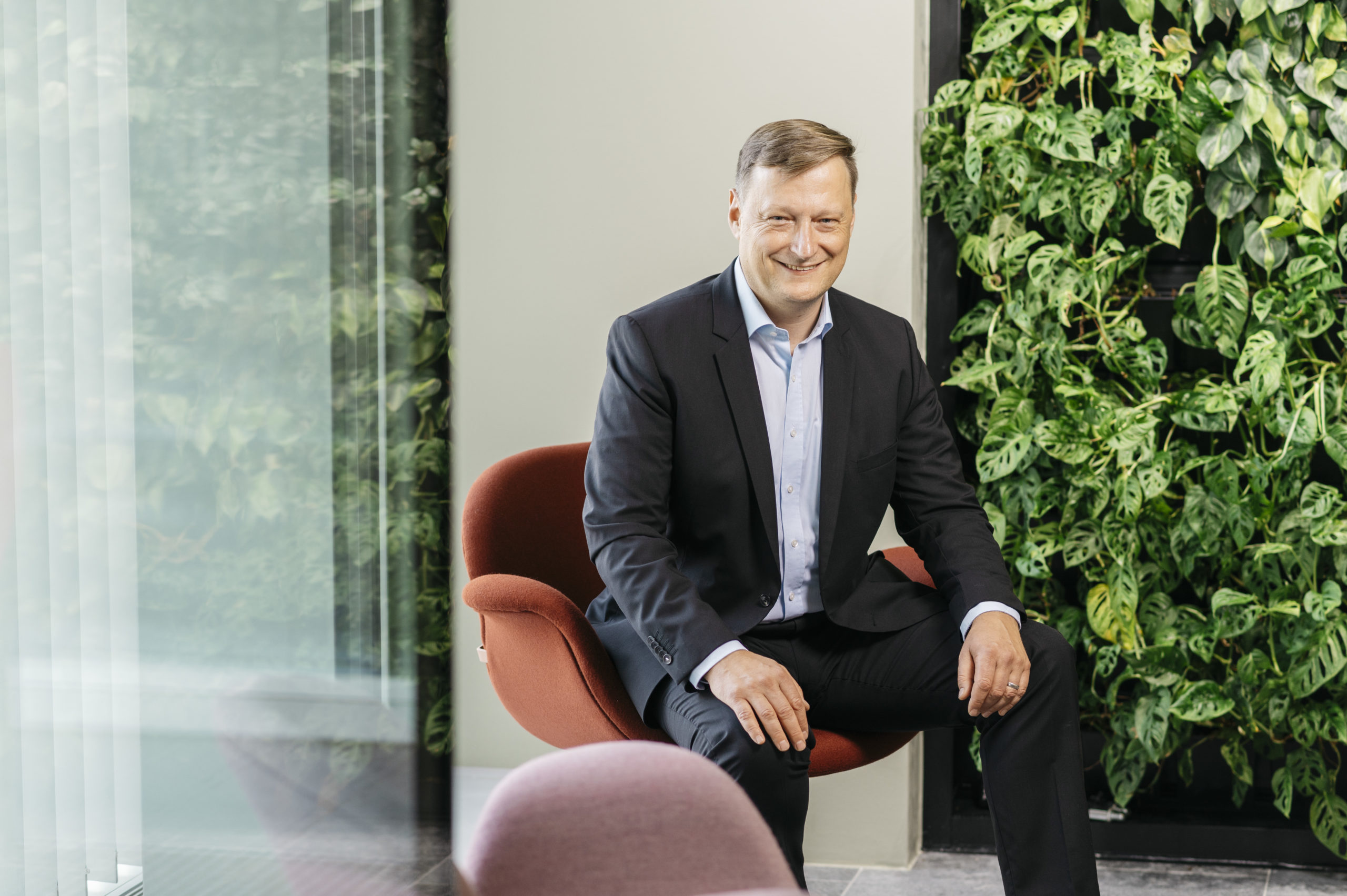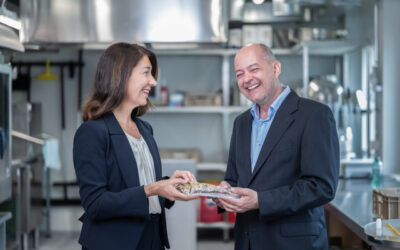Stefan Palzer on working together to find viable solutions for sustainable and affordable nutrition

Stefan Palzer, Nestlé’s CTO, Head of Innovation, Technology and R&D, & Executive Vice President and the Valley’s Steering Committee Vice President is passionate about science, technology, and the role that innovation plays in making diets tastier, more nutritious, sustainable and affordable. We sat down with him to chat about what Switzerland has to offer as a food innovation nation.
What does sustainable food mean to you personally?
I grew up on a family farm which triggered my interest in food and agriculture. After that I did an apprenticeship and studied food technology. Early in my career, I acquired hands-on experience in product development. Through these experiences, I developed a passion for science and technology, and the key role that innovation plays in making diets tastier, more nutritious, sustainable, and affordable around the world. There is nothing more satisfying than contributing to making food more sustainable or to make nutrition accessible to people in need.
What has Switzerland got to offer as a food innovation nation?
Switzerland is deeply rooted in agriculture. The country is characterized by an astonishing density of expertise along the food value chain. The Swiss Food & Nutrition Valley is the result of this unique innovation ecosystem for food and nutrition which includes globally leading multi-national companies, and world class scientific institutions, and a very strong start-up ecosystem. This truly makes it the perfect breeding ground for innovative solutions that can address global nutrition and sustainability challenges, from farm to fork, in a way that is good for the people and the planet.
In your opinion, what are the most significant challenges that need to be overcome?
The world’s population might reach almost 10 billion in 2050, making today’s food supply more challenging than ever. We need to find the right balance between sustainability, convenience, and taste, while also addressing global health challenges such as access to affordable nutrition, malnutrition as well as obesity. In many cases these priorities conflict with each other. We can only manage the resulting trade-offs through disruptive innovation and collaboration amongst all players.
What’s the role of large enterprises specifically in shaping the future of food?
Serving our consumers and the planet means tackling global challenges such as climate change, malnutrition, and affordability, while catering for nutritional needs of those with specific health conditions. Solving these challenges requires a sense of urgency and rapid scaling of the most effective solutions. Together with start-ups we are also exploring emerging technologies such as artificial intelligence and cell-based food. Through these initiatives, we can continue to deliver truly innovative solutions that are tasty, nutritious, affordable, and sustainable.
How can we support consumers to tackle complex issues like the climate crisis through their dietary choices?
Good food and good nutrition are fundamental to everyone’s health, well-being, and enjoyment, as well as cultural identity. As a food innovator, we can support consumers through delivering more sustainable food choices, that are authentic, delicious, and nutritious. For example, at Nestlé, we have a great range of plant-based alternatives to fish, meat, dairy, and eggs. We’re also exploring solutions for climate friendly milk, and we upcycle agricultural side streams, while also using more locally sourced ingredients. Additionally, we’re exploring innovative solutions to increase accessibility to affordable nutritious products to help vulnerable consumers around the world.
What role does collaboration play in driving change?
Transforming the global food systems can only be achieved through strong collaboration by all players – from food companies, academia, governments, and civil society. This is exactly why initiatives like the Valley are so important. They make it easier to spot synergies and co-create breakthrough science and technology solutions that lead to healthier, more sustainable food systems globally.
Additionally, collaboration with disruptive start-ups is also key to leverage their creativity and to combine it with the scaling capabilities of large companies. We are focused on helping start-ups refine their value proposition, while giving them access to our expertise and infrastructure to help them bring their products to the market faster through our R+D Accelerator initiative. Additionally, we support programs such as Mass Challenge Switzerland and EIT Food that provide a platform and resources for start-ups and students to bring their innovative ideas to life.
The situation of the world’s food systems will get more challenging in the next few years, and we need to act now to change the future. Let’s work together to find and deploy the highest performing solutions. Let’s move the needle!
Never miss a Swiss food innovation morsel.
Latest News
Yumame Foods and Le Patron partner for a delicious, plant-based future of food
Valley partner Yumame Foods and the...
What the food industry can learn from GDI’s Major Shifts model
The future is coming faster than many...
Meet the finalists of the Igeho Rising Star Award for 2025
Many startups applied. 15 made it to...
Nestlé and IBM leverage AI and deep tech to unlock new packaging innovations
Valley partner, Nestlé R&D has...




